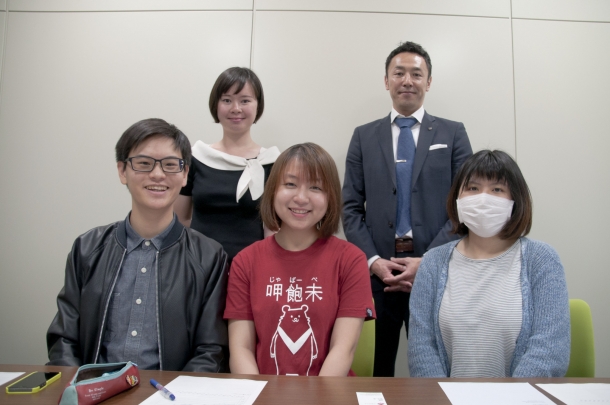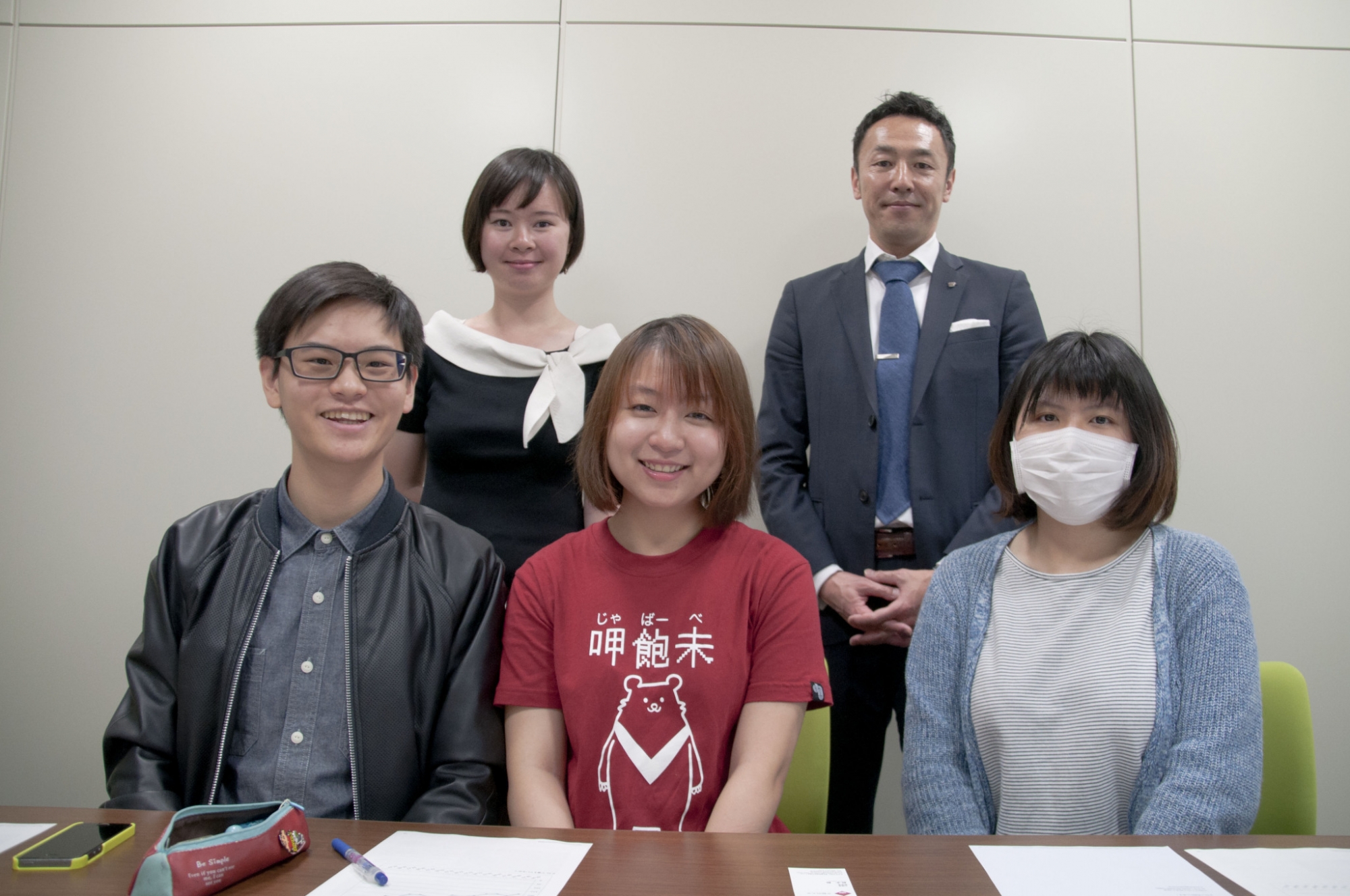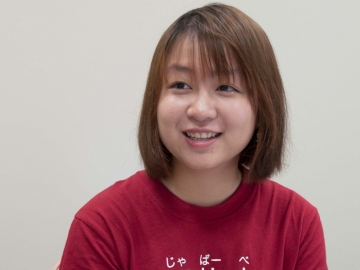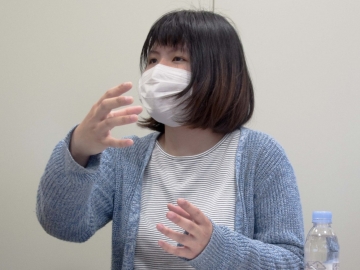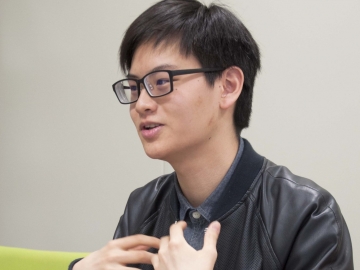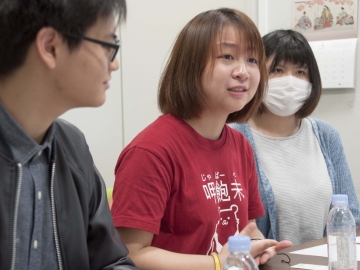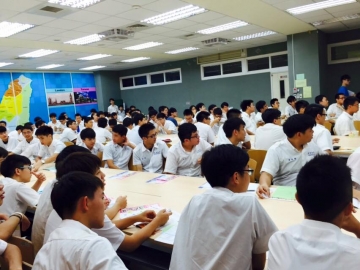Passing on the legacy: an interview with Taiwanese students
Thu, Apr 28, 2016-
Tags
The number of Taiwanese students at Waseda University has increased over the years. Only 200 Taiwanese students studied at Waseda when the Taipei Office launched in 2008. As of November 2015, this number has doubled to nearly 400. What caused this dramatic increase?
Waseda owes its emerging reputation in Taiwan to the strong network of current Taiwanese students and alumni. Prospective students learn of the university by word of mouth in events such as high school visits. Today, we invite three Taiwanese students to discuss Waseda’s widespread recognition in Taiwan.
- Rose, School of International Liberal Studies, 2nd year
- Hsuan, School of Political Science and Economics, 2nd year
- Jonathan, School of International Liberal Studies, 2nd year
Please tell us about the programs or activities you are involved in on campus.
Rose: I am a student at the School of International Liberal Studies (SILS). My concentration is on international economics and Taiwanese studies, and I am studying Japanese, English, and Korean. As for extracurricular activities, I serve as vice president for the Waseda Taiwanese Student Association. I’m also involved with Waseda International Festival (WIF), where I have become friends with students from different cultures through dance.
Hsuan: I am studying international economics and macroeconomics at the School of Political Science and Economics through the EDESSA program. Although all my courses are taught in English, I have also been studying Japanese at the Center for Japanese Language.
Jonathan: I’m also a student at SILS like Rose, focusing on linguistics and politics. My minor is science of linguistics, so I have been taking classes at the Global Education Center to meet my requirements. I’m enrolled in open courses at the School of Letters, Arts, and Sciences as well, enjoying the full experience of a liberal arts education. I’m also part of WIF and the Waseda Festival Committee.
How did you learn of our university?
Rose: A graduate of my high school came to talk about Waseda. Since I have always been interested in Japan and had been studying Japanese by then, her sharing the experience of living and studying in Japan further encouraged me to apply. I later participated in a study abroad fair, did my research, and started to prepare for studying abroad in Japan.
Hsuan: Rose and I went to the same high school, and I became interested in Waseda for the same reason. Waseda University has an admissions agreement with designated Taiwanese high schools, so I studied rigorously for this spot because it is highly competitive to get recommended.
Jonathan: Waseda University is well-known among my grandparents’ generation, and my grandparents told me about Waseda. When I saw posts on social media about being accepted to Waseda from my peers, I was motivated to study harder. SILS was especially attractive for me because I could complete my degree entirely in English while having the opportunity to study Japanese simultaneously.
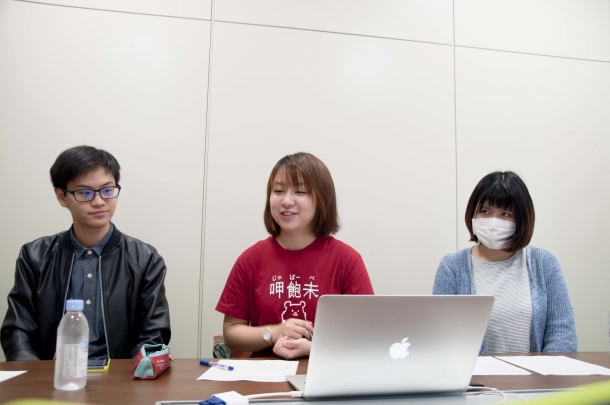
Why did you choose Waseda?
Rose: At Taiwanese universities, students don’t have much opportunity to speak English, but I wanted to continue honing my English skills. The courses at SILS are all in English, and I had always dreamed of studying abroad in Japan. I also chose Waseda University because I could study Japanese at the Center for Japanese Language. I did go to information sessions for other Japanese universities, but they were all conducted in only in Japanese.
Hsuan: It’s the same for me. I thought Waseda was the best because I could take classes in English but study Japanese at the same time. The liberal atmosphere unlike Taiwanese universities was also appealing. I’m still fascinated by the university’s open-mindedness even today.
Jonathan: My high school is separated into two groups: students who intend to study abroad and those who don’t. I was originally part of the latter group, and I had already been accepted to a Japanese language program at a Taiwanese university. However, I had already passed the N1 Japanese Language Proficiency Test by then, and I wanted to learn other languages also. That’s when I started to consider SILS, where various options are available. Moreover, being able to apply to SILS through the AO admissions policy, which only requires taking a foreign language test, high school grades, and an interview, made the process easy for me.
What do you think are the advantages of the high school visits?
Rose: I felt a personal connection with the visitors because they are alums of your high school. Hearing firsthand experiences of living and studying in Japan makes the information authentic and convincing. It is possible to ask questions at a much larger college fairs, but the questions are limited.
Hsuan: 50 to 60 high school students gather at these high school visits, and everyone pays very close attention not to miss anything the visitor says. Also, you are allowed to exchange personal contact information afterwards. This is comforting because you can directly ask questions you were uncomfortable to ask earlier or about something that came up later on. The more you ask, the better you feel and become inspired to go to Waseda. This kind of network only exists here.
Jonathan: My high school also hosts similar information sessions. I did not participate, but I think this is a good way to learn about the university. Having graduates from your high school pay these visits makes it easier for prospective students to interact with the visitors. I myself have visited my high school to share my experience, and the students seemed enthusiastic. They asked me about the difficulties and the mistakes I made in Japan, and I was able to answer their questions with sincerity.
- Taiwanese students talking about high school visits
- High school visit
Do you have any messages for prospective students who are interested in studying abroad in Japan?
Rose: You should put your wholehearted effort into studying English. SILS and EDESSA program courses are all conducted in English. Your peers will not only be international students but Japanese returnees who speak English fluently, so English will become your major mean of communication. You can learn Japanese after being admitted to Waseda, so just knowing the basics is enough.
Hsuan: I’m sure some high school students are concerned with living abroad alone, but members of the Waseda Taiwanese Student Association help each other out. Of course, you may become homesick from time to time, but having support from your Taiwanese peers will help ease any worries or feelings of loneliness.
Jonathan: You should have a clear objective as to why you want to study in Japan because doing so is much more expensive in terms of cost of living and tuition. This can be financially pressing for your parents, so you need to be able to explain your reasons to them. Also, having concrete reasons for studying abroad before your departure will help you stay goal-oriented and focused on your studies even during tough times.
What are your future goals?
Rose: I am interested in studying abroad at Chulalongkorn University in Thailand through the AIMS program in my fourth year. I want to build an expertise in languages by becoming fluent in Japanese, Taiwanese, and English and be marketable while job hunting. It would be amazing to work for embassies or travel agencies.
Hsuan: I want to use my knowledge in politics for work. I may return to Taiwan in the future.
Jonathan: I must consider Taiwanese military draft as a realistic, near future. I’m also a dual-American citizen, so I would like to apply for the Double Degree Program with the National Taiwan University to study there. I haven’t decided whether to seek for employment or apply to graduate school yet.
We hope the Taiwanese students on campus will continue to pass on the legacy by sharing their Waseda experience with prospective students from their home high schools and further empower the close-knit Waseda community in Taiwan.
